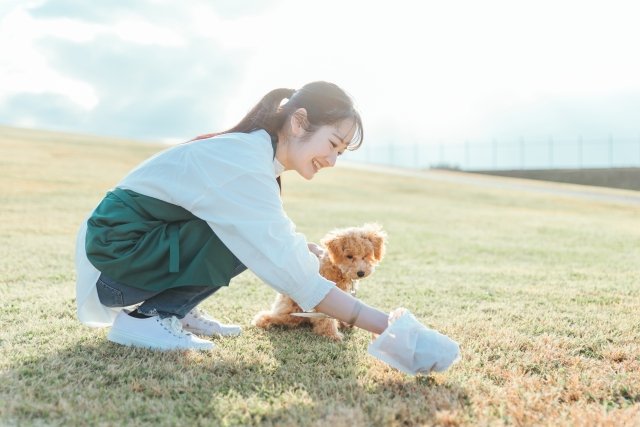There may be some foreigners who are looking for a job in Japan, but in fact, many of those foreign nationals on leave have a hard time at interviews.
This is because interviews in Japan are very “special”.
What exactly is so special about it?
In this article, I would like to explain the “interview points” that you should keep in mind in order to get a job at such a Japanese company.

Contents
- 1 Any deviation from the interview rules will increase the possibility of rejection.
- 2 Points to keep in mind when interviewing at a Japanese company
- 2.1 Arrive 10 minutes before the designated time and check in at the reception desk 5 minutes before.
- 2.2 When entering the room, knock on the door three times and use a specific voice.
- 2.3 Be seated only when prompted to do so.
- 2.4 Introduce yourself and explain why you applied for the job beforehand.
- 2.5 Be prepared to answer questions that foreigners are often asked
- 2.6 When you leave, bow deeper than when you entered the room and don’t forget to say thank you.
- 3 Conclusion
- 4 Related posts
Any deviation from the interview rules will increase the possibility of rejection.
Naturally, if you deviate from the rules that are considered correct for interviews conducted by Japanese companies, your chances of being rejected will increase.
As mentioned at the beginning of this article, interviews conducted by Japanese companies are very different and “special” from those conducted by foreign companies.
In other words, if you do not prepare in advance, you will be caught by some special rule and will not be hired.
In Japan, although the society is changing to a meritocracy, the old values of seniority and lifetime employment still remain.
In Japan, where there is a strong sense of “right follows left,” it is highly likely that any behavior or action that differs from others will not be considered “individuality,” but rather “a person at risk of disrupting harmony.

Click here to learn Japanese language with the best one-on-one Japanese tutoring lessons in online classes.

Points to keep in mind when interviewing at a Japanese company
Now, let’s list some interview points that you should know when actually seeking employment in Japan.
Arrive 10 minutes before the designated time and check in at the reception desk 5 minutes before.
Japan is a country with a very high sense of time.
Public transportation such as trains and buses operate almost without delay.
Because of this, you need to be very careful about the time you arrive for your interview.
Arriving at the reception desk on time may not be a problem in other countries, but it is not acceptable in Japan.
Arrive 10 minutes before the designated time and check in 5 minutes before.
When entering the room, knock on the door three times and use a specific voice.
When entering the interview room, knock on the door “three times” and open the door after being told to “come in” and then reply “excuse me.
After entering the room, turn back to face the door, quietly close the door, and bow to the interviewer, adding the words, “Nice to meet you today.
When bowing, do not just bow your head, but stand up straight and tilt your back about 30 degrees.
If you are a man, your hands should be at your sides; if you are a woman, fold your hands in front of your body (left hand down) and bow.
Be seated only when prompted to do so.
Even if you enter the room and move in front of the interviewer, do not sit down immediately.
Stand beside the chair and say, “Thank you for your valuable time today. I look forward to working with you.
When the interviewer says, “Please come in,” say, “Excuse me,” and bow before sitting down.
Leave your bag next to your chair at this time.
Introduce yourself and explain why you applied for the job beforehand.
In interviews in Japan, the interviewer may have a certain amount of questions to ask you.
That is, “Please introduce yourself” and “Tell us why you wanted to work for us.
Therefore, try to think of a 30-second to one-minute self-introduction and the reason why you applied for the job in advance.

Be prepared to answer questions that foreigners are often asked
When a foreigner interviews at a Japanese company, it is highly likely that he/she will be asked questions that are unique to foreigners.
Why did you decide to come (live) in Japan?
How long do you plan to stay in Japan?
What do you like about Japan?
It may be a good idea to prepare answers to at least these three questions.
Incidentally, there are cases where answering these questions too honestly is not a good idea.
For example, when asked “Why did you decide to come to Japan? If you answer only, “Because I can earn money,” you will not give a good impression.
If you add that you can grow both as a person and in business, you will give a good impression.
When you leave, bow deeper than when you entered the room and don’t forget to say thank you.
If the interview is over, thank them for their time today as you sit down.
When you stand up, move to the side of the chair and bow.
When you walk to the door, turn to the interviewer and say, “Excuse me,” and bow deeply (about 45 degrees).
Open and close the door politely.
Conclusion
In this article, we have explained the “interview points” that you should remember in order to get a job at a Japanese company.
In order to get a job at a Japanese company, you need to give a good impression to the Japanese side of the company through your answers and actions.
It may be difficult to remember everything perfectly and put it into practice, but it is enough to have it all in your head and to be able to put about 80% of it into practice on the day of the interview.
If you are a foreigner who actually has an interview scheduled, we hope you will find this information useful.










